INTRODUCTION
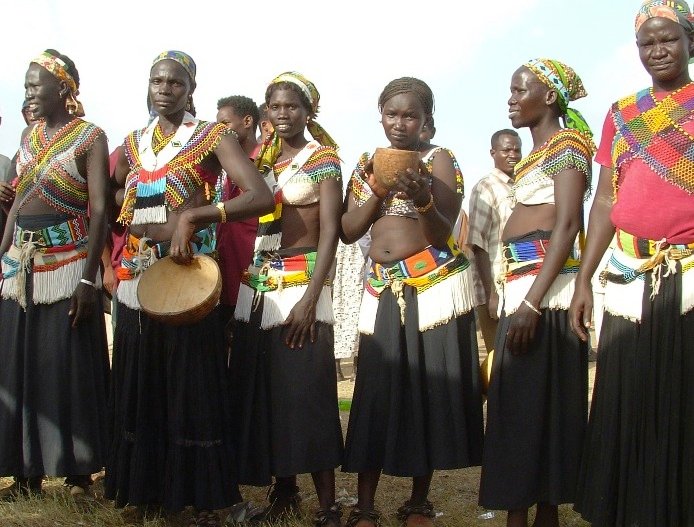
The culture of a people is what marks them out distinctively from other human societies in the family of humanity. The full study of culture in all its vastness and dimensions belongs to the discipline known as anthropology, which studies human beings and takes time to examine their characteristics and their relationship to their environments. Culture, as it is usually understood, entails a totality of traits and characters that are peculiar to a people to the extent that it marks them out from other peoples or societies. These peculiar traits go on to include the people's language, dressing, music, work, arts, religion, dancing and so on. It also goes on to include a people's social norms, taboos and values. Values here are to be understood as beliefs that are held about what is right and wrong and what is important in life.
Axiology as a branch of philosophy deals with values embracing both ethics and aesthetics. This is why philosophical appraisal of African culture and values is not only apt and timely, but also appropriate. Moreover, the centrality of the place of values in African culture as a heritage that is passed down from one generation to another, will be highlighted. We shall try to illustrate that African culture and values can be appraised from many dimensions in addition to examining the method of change and the problem of adjustment in culture. Here we hope to show that while positive dimensions of our culture ought to be practiced and passed on to succeeding generations, negative dimensions of our culture have to be dropped in order to promote a more progressive and dynamic society.
Before I can have an appraisal of African culture and values, it is necessary for me to introduce the concept of culture and its meaning.
A culture is an embodiment of different values with all of them closely related to each other. That is why one can meaningfully talk about social, moral, religious, political, aesthetic and even economic values of a culture. Let us now look at these values piece-meal, as this would give us an understanding how they manifest in an African culture and the importance being attached to them.
Oral Tradition
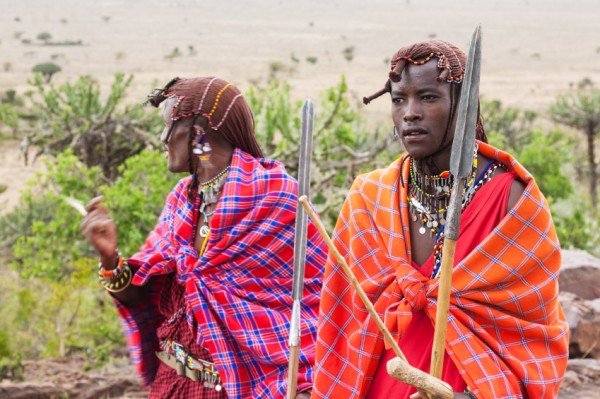
Oral tradition is very important in African culture, as it insures the passage of cultural practices from one generation to another.
Listening is an equally important skill, which has been perfected by the traditional oral practices. Numerous songs and dances have been transmitted by word of mouth.
Music and Poetry in African Traditions
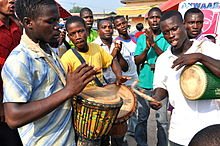
Naturally, singing is very important to the African society because the melody and rhythm follow the intonation of the song text. The songs are often sung in call-and-response form.
In West Africa, a griot is a praise singer or poet who possesses a repository of oral tradition passed down from generation to generation. They must know the traditional songs and must also be able to improvise songs about current events and chance incidents.
Music is a form of communication and it plays a functional role in African society. Songs accompany marriage, birth, rites of passage, hunting and even political activities. Music is often used in different African cultures to ward off evil spirits and to pay respects to good spirits, the dead and ancestors.
Dance is an integral part of the African culture, and it utilizes symbolic gestures, masks, costumes, body painting and props to communicate. The dance movements can be simple or complex with intricate actions including fast rotation, ripples of the body and contraction and release. Dance is used to express emotion, whether joyful or sorrowful and it is not limited to just the dancers. Often spectators will be encouraged to join in.
Traditional African Masks
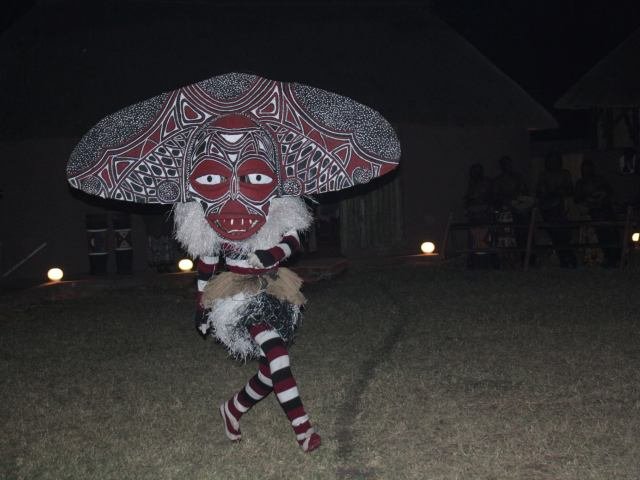
The African masks that are used in dances have religious, ceremonial and functional origins. The artist who carves the mask will ceremonially purify himself and offer prayers to his ancestors for guidance before he begins the actual carving of the mask.
The African mask represents a spirit and it is believed that the spirit possesses the dancer as they wear the mask. The chosen dancer goes into a trance-like state in order to receive guidance and wisdom from the ancestors. The dancer will utter and moan the messages received and a wise man, who accompanies the dancer will translate the message.
Art
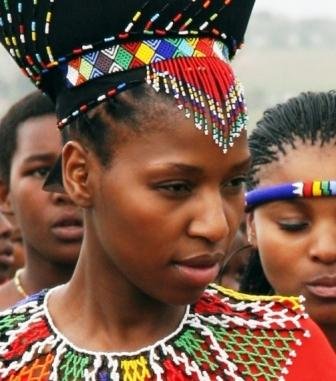
Although music and dance are extremely important African traditions and are very common forms of communication, many African people express themselves in other art forms as well.
The Zulu people are well known for their intricate beadwork. The colour of each bead carries a specific meaning. The beads have been used to carry messages known as “ucu,” a Zulu term loosely translated as “love letters”.
It is an African tradition for young girls to send a boy a beaded bracelet of different colours. The boy will court her for a while and at the appropriate time, he will ask her the meaning of the beads.
Art and sculpture are prevalent in African culture, and the most common themes depict a couple, a woman and child, a male with a weapon or animal, or a “stranger.”
Couples are usually freestanding figures of the same size, representing the importance of “two as one.” A male and female couple in African art usually depicts strength and honour rather than love and intimacy, as it is uncommon for African men and women to publicly display their affection.
A mother and child couple can represent “mother earth” and her people or the strong bond between mother and child.
The male figure with a weapon or animal, represent honour to departed ancestors. African men are often honoured in warfare and there is a great emphasis on weaponry in African art, as it depicts survival and power.
When the stranger is represented in African art, it usually depicts someone from a foreign country or tribe that is not welcomed.
#getting-to-know-africa
#contemporary-african-issues
SOURCES
Antia, O.R.U. 2005. Akwa Ibom Cultural Heritage: Its Incursion by Western Culture and its Renaissance. Uyo: Abbny Publishers.
Etuk, U.A. 2002. Religion and Cultural Identity. Ibadan: HopePublication.
Ezedike, E.0. 2009. African Culture and the African Personality. From Footmarks to Landmarks on African Philosophy. Somolu: 0baroh and 0gbinaka Publishers.
NOTE: ALL ADDITIONAL PICTURES ARE DOWNLOADED FROM THE INTERNET IN ORDER EXPLAIN AFRICAN SOCIETY IN GENERAL.